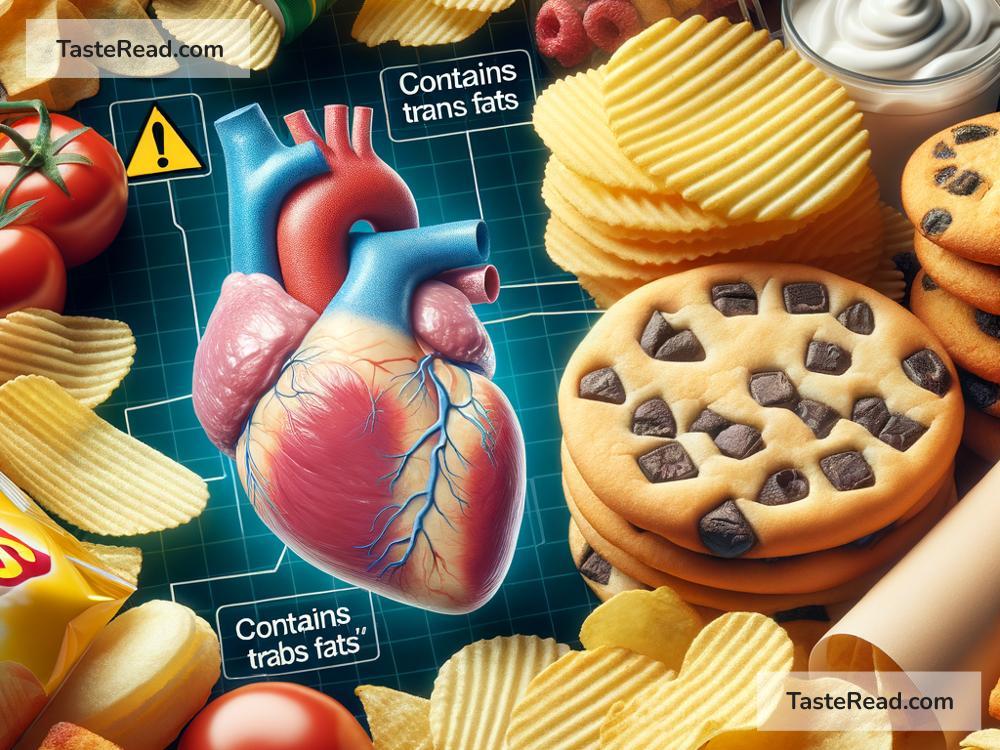The Impact of Trans Fats on Health: What You Need to Know
When it comes to food, many people hear advice like “eat your vegetables” or “cut down on sugar.” But there’s another ingredient that often gets talked about when discussing healthy eating: trans fats. While the name might sound technical or confusing, the truth is simple—trans fats are bad for your health. Let’s dive into what trans fats are, where they’re found, and the impact they can have on our bodies.
What Are Trans Fats?
Trans fats are a type of unhealthy fat. Fats are an important part of our diet because they give us energy and help our bodies function correctly. There are good fats, such as those found in avocados, nuts, and fish, and then there are bad fats—trans fats fall into the “bad” category.
Trans fats are not naturally found in most foods. They are created through a process called hydrogenation, which adds hydrogen to liquid oils to make them solid and extend their shelf life. For example, hydrogenation turns liquid vegetable oil into margarine or shortening. This process makes it easier for manufacturers to produce cheap, long-lasting foods like baked goods, fast food, and packaged snacks. While this might be good for food companies, it’s not great for our health.
What Foods Contain Trans Fats?
Trans fats can be found in:
– Fried foods (like French fries and fried chicken)
– Packaged snacks (like chips and cookies)
– Margarine and vegetable shortening
– Store-bought baked goods (like donuts, cakes, and pastries)
– Frozen pizza
– Some processed meats
They are often used in these foods because they help improve texture and taste while keeping products fresh for a longer period of time.
While some trans fats occur naturally in small amounts in certain animal products, the majority that we consume come from these processed and fried foods.
How Do Trans Fats Affect Health?
Trans fats are considered one of the most harmful types of fat for your health. Here’s how they impact our bodies:
-
Heart Problems: Trans fats have been strongly linked to heart disease. They raise your levels of LDL cholesterol, which is often called “bad cholesterol.” High LDL cholesterol can cause clogging in your blood vessels, making it harder for blood to flow to your heart and brain. At the same time, trans fats lower your HDL cholesterol, which is the “good cholesterol” that helps clean out your blood vessels. This creates the perfect storm for heart attacks and strokes.
-
Weight Gain: Trans fats are high in calories and offer no nutritional benefits. Eating foods with trans fats can lead to weight gain over time, which is a risk factor for numerous health problems, including diabetes, high blood pressure, and joint pain.
-
Diabetes: Research shows that trans fats may increase the risk of type 2 diabetes. They can make your body less sensitive to insulin, the hormone that helps regulate your blood sugar levels. When your body doesn’t respond to insulin properly, blood sugar levels can rise, leading to diabetes.
-
Inflammation: Trans fats can trigger inflammation in your body, which has been linked to multiple health problems like arthritis, heart disease, and certain cancers. Chronic inflammation is harmful, and reducing your intake of trans fats is one way to decrease it.
-
Memory and Brain Health: Studies have found that diets high in trans fats can harm brain health. Eating too many trans fats may increase the risk of memory loss and diseases like Alzheimer’s.
Global Efforts to Reduce Trans Fats
Public health experts around the world agree that trans fats should be avoided as much as possible. In fact, many countries have taken steps to ban or limit trans fats in food. For example, in the United States, food manufacturers can no longer use artificial trans fats in food due to laws passed by the Food and Drug Administration (FDA). Many companies have reformulated their products to remove trans fats, making food slightly healthier.
The World Health Organization (WHO) has also called for a global ban on trans fats to reduce heart disease and save lives. These actions show just how serious the problem is and how eliminating trans fats can make a big difference in public health.
How You Can Avoid Trans Fats
The good news is that avoiding trans fats is easier than ever. Here are some tips for cutting them out of your diet:
1. Read Food Labels: Check the packaging of foods and look for “trans fats” or “partially hydrogenated oils.” If you see these terms, try to avoid the product.
2. Cook at Home: Homemade meals tend to be healthier because you control the ingredients. Use healthy oils like olive or avocado oil instead of margarine or shortening.
3. Choose Fresh, Whole Foods: Focus on fruits, vegetables, whole grains, lean proteins, and healthy fats. These foods are naturally free of trans fats.
4. Limit Fast Food and Packaged Snacks: Many of these items are high in trans fats. If you do eat out, ask about preparation methods or choose baked instead of fried options.
Conclusion
Trans fats might seem small and harmless, but their impact on health is far-reaching. They harm your heart, can lead to weight gain, diabetes, and inflammation, and put your body at risk for serious diseases. The good news is that many countries are working to eliminate trans fats from food supplies, and you can make smarter choices with your diet to protect your health.
By reading labels, focusing on fresh foods, and avoiding processed snacks, you can significantly reduce your intake of trans fats. Small choices every day make a big difference in how you feel and how healthy you’ll be in the future.


